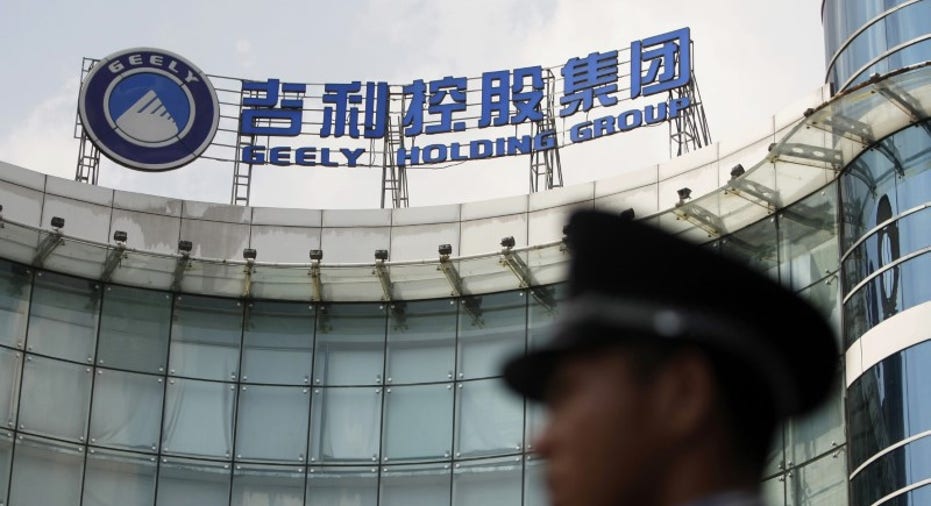Volvo, Geely to deepen ties, share small car plant

SHANGHAI – Swedish carmaker Volvo is expected to announce later on Wednesday a series of moves deepening cooperation with its Chinese parent Zhejiang Geely Holding Group Co - a tie-up that's shaping up to show that China can make a success of buying consumer brands.
Volvo's global CEO Hakan Samuelsson and Geely chairman Li Shufu are expected to say the two firms will soon start producing cars at a joint assembly plant in Taizhou, in the eastern Zhejiang province.
"We're��going to be making China a global manufacturing and export (hub) for the company ... we will be for the first time shifting production of particular cars from Sweden to China in their entirety," said a Volvo insider familiar with the matter.
"We're placing China manufacturing and export at the center of our industrial strategy, and deepening our industrial synergies with Geely," added the person, who did not want to be identified because the move has not yet been made public.
The Taizhou plant, operated by Volvo and expected to be up and running in the current quarter, will produce compact cars based on an "advanced" vehicle architecture��the two companies have jointly developed in Sweden. Both Volvo and Geely are expected to produce small cars at the plant based on that Compact Modular Architecture��(CMA) platform - for both domestic and export markets.
Volvo began exporting its China-made cars last year, shipping its S60 Inscription to the United States.
The automaker is also expected to unveil two stretched variants of its recently launched large S90 premium sedan, including the S90 Excellence, which has removed the front passenger seat to allow for what it calls the Lounge Console "designed to meet chauffeur-driven executive customers' need to relax or work while on the move".
Volvo will build both S90 variants at its assembly plant in Daqing in northeastern China, for sale in China and abroad.
The Taizhou plant will be Volvo's third assembly site in China, along with Daqing and one in Chengdu in western China. The carmaker also has two plants in Europe, and is building a new plant in South Carolina in the United States.
RISING SALES
Geely raised auto industry eyebrows when it bought Volvo from Ford for $1.8 billion six years ago. Few saw any obvious synergies in marrying a premium Western marque with a Chinese entry brand.
But the two appear to be making it work.
Cooperating on buying parts, developing technologies and boosting capacity, sales of both brands have risen.
Volvo increased its third-quarter sales in both China and the United States by more than a fifth, and July-September operating profit jumped 62 percent to 2.07 billion Swedish crowns ($232.5 million). [nL8N1CW723]
Geely sold more than half a million cars last year, up 22 percent, and sales in the first nine months of this year were already at nearly 460,000 cars.
"Moving production from Sweden to China, and sharing manufacturing processes and components has been a positive for both Geely and Volvo from a cost savings perspective," said James Chao, Asia-Pacific chief for consulting and research firm IHS Markit Automotive.
"It makes sense especially as they upgrade the Geely product line-up with the new Lynk brand, as well as through tangible product improvements, which should help protect the Volvo brand from association with a lower cost brand."
Geely said this month it will use the jointly developed compact car CMA platform for a new brand called��Lynk & Co, which will begin production next year for the Chinese market and start exporting to Europe and the United States in 2018.
'B' GRADE
Chao at IHS said that despite the signs of progress in the partnership, the process of integrating Volvo has been slower than he expected. "So far, I'd grade it a 'B'," he said.
Geely insiders acknowledge that Volvo wants to keep some distance between the two brands, fearing that too close a manufacturing tie-up could risk diluting its premium image.
And, the insiders note, there is still some disconnect as to just how premium Volvo's premium cars should be for the Chinese market, with Li said to want a more upscale model to compete with BMW , Audi , Mercedes-Benz .
"It's a cultural issue," said one of the insiders. "Volvo is rooted in Swedish egalitarian society. To Swedish people, Volvo is just a car; better quality, safe, but not a luxury car. It's very different from Chinese culture."
A Volvo spokesman said there is no disagreement on the need for a large premium sedan for Volvo, adding the stretched S90 is the kind of upscale car Li has wanted from Volvo.
"The S90 large sedan is an area we need to move into in order to be credible in the premium sector," the spokesman said. "There's no such thing as a premium car maker without a successful premium sedan. The long wheel-base is a way of providing a variant better suited for a market such as China."
(Reporting by Norihiko Shirouzu; Editing by Ian Geoghegan)



















